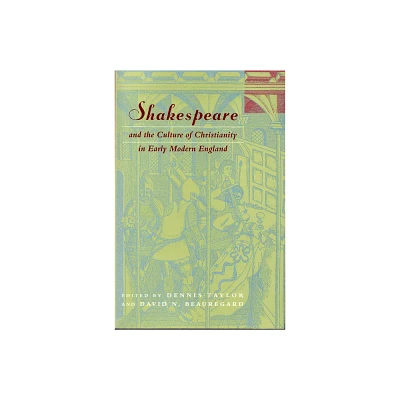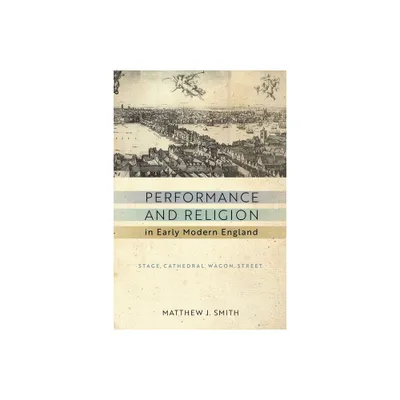Home
Shakespeare and Religion: Early Modern Postmodern Perspectives
Loading Inventory...
Barnes and Noble
Shakespeare and Religion: Early Modern Postmodern Perspectives
Current price: $125.00


Barnes and Noble
Shakespeare and Religion: Early Modern Postmodern Perspectives
Current price: $125.00
Loading Inventory...
Size: Hardcover
*Product Information may vary - to confirm product availability, pricing, and additional information please contact Barnes and Noble
The topic of Shakespeare and religion is a perennial one, and the recent "turn to religion" in historical and literary scholarship has pushed it to the fore. Besides speculating about Shakespeare's personal religious beliefs and allegiance, historians and literary critics writing about early modern England are reexamining the religious dynamics of the period and emphasizing the ways in which old, new, and emerging religious cultures coexisted in conflicting hybrid and unstable forms.
The contributors to
Shakespeare and Religion: Early Modern and Postmodern Perspectives
deal with the topic of Shakespeare and religion from two points of view not always considered complementary—that of the historical approach to Shakespearean drama in its early modern contexts, and that of postmodern philosophy and theology. The first illuminates the culture-specific features of the plays, whereas the second emphasizes their transhistorical qualities and the relevance of the deep religious and philosophical issues surfacing in early modern culture to contemporary religious struggles and awareness.
The contributors to
Shakespeare and Religion: Early Modern and Postmodern Perspectives
deal with the topic of Shakespeare and religion from two points of view not always considered complementary—that of the historical approach to Shakespearean drama in its early modern contexts, and that of postmodern philosophy and theology. The first illuminates the culture-specific features of the plays, whereas the second emphasizes their transhistorical qualities and the relevance of the deep religious and philosophical issues surfacing in early modern culture to contemporary religious struggles and awareness.

















